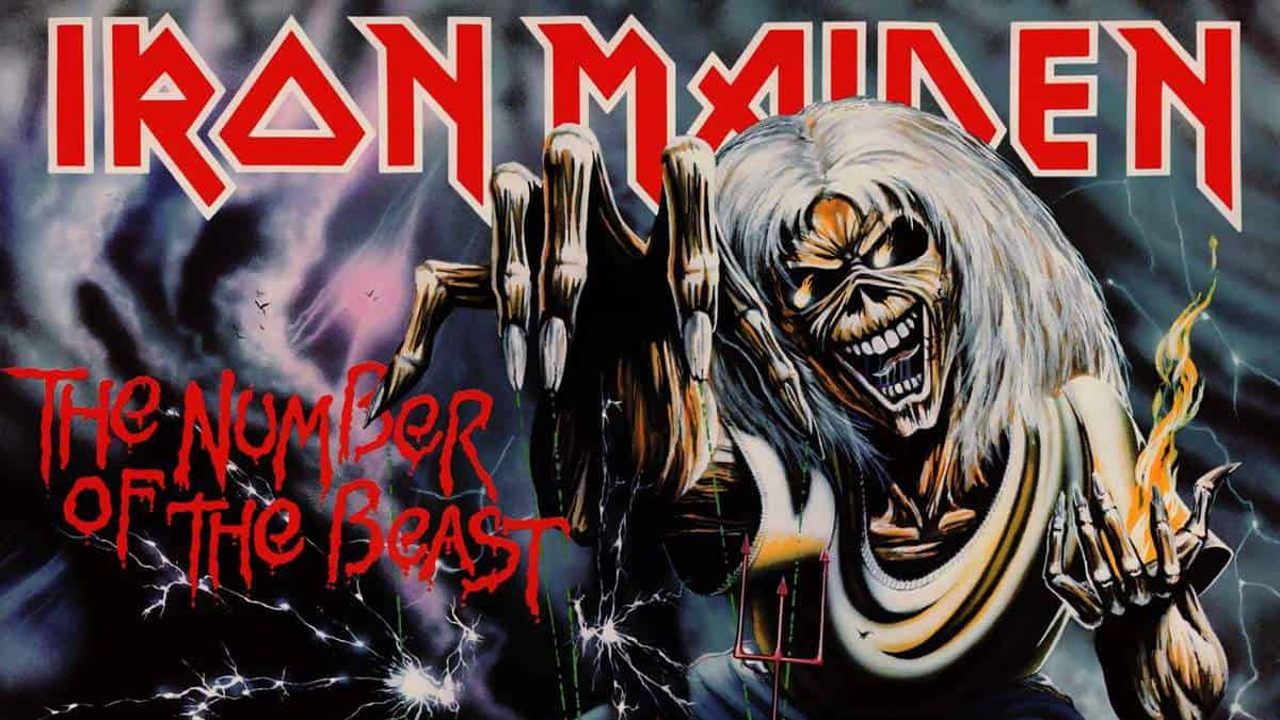“A mechanic charged our producer £666. He was so freaked out he insisted he pay £667.” Inside the legend that Iron Maiden’s The Number Of The Beast was cursed
Spooky goings-on and controversy in the US have inspired rumours that Iron Maiden’s magnum opus was cursed by supernatural forces. Are they right? Probably not…

Select the newsletters you’d like to receive. Then, add your email to sign up.
You are now subscribed
Your newsletter sign-up was successful
Want to add more newsletters?

Every Friday
Louder
Louder’s weekly newsletter is jam-packed with the team’s personal highlights from the last seven days, including features, breaking news, reviews and tons of juicy exclusives from the world of alternative music.

Every Friday
Classic Rock
The Classic Rock newsletter is an essential read for the discerning rock fan. Every week we bring you the news, reviews and the very best features and interviews from our extensive archive. Written by rock fans for rock fans.

Every Friday
Metal Hammer
For the last four decades Metal Hammer has been the world’s greatest metal magazine. Created by metalheads for metalheads, ‘Hammer takes you behind the scenes, closer to the action, and nearer to the bands that you love the most.

Every Friday
Prog
The Prog newsletter brings you the very best of Prog Magazine and our website, every Friday. We'll deliver you the very latest news from the Prog universe, informative features and archive material from Prog’s impressive vault.
Recorded in just five weeks between January and February 1982, and released that March, The Number Of The Beast stands tall among Iron Maiden’s greatest works. It was the swan song for drummer Clive Burr and the introduction of the band’s new frontman, former Samson vocalist Bruce Dickinson. It also unleashed upon the world three of the band’s biggest anthems: The Number Of The Beast, Run To The Hills and Hallowed Be Thy Name. It became Maiden’s first UK number one, launching the band into a soaring new level of fame. 40-plus years on, Number… has sold more than 10 million copies worldwide – but was it all the fruits of a deal with the Devil?

Rumours of Number… being a cursed album have persisted for decades. The early ’80s were fraught with the so-called Satanic Panic: a mostly American phenomenon where heavy metal and other forms of music were accused by pearl-clutching moralists of harbouring sinister messages in the name of Lucifer.
Maiden’s masterpiece was no exception, not least due to its foreboding title track, which all but begged religious fundamentalists to come after them. And that’s precisely what they did, boycotting shows on the US tour and handing out leaflets but stopping short, in some cases, of burning the LPs, lest they inhale toxic fumes.
In support of the notion that Number… was cursed are tales of spooky phenomena that supposedly occurred while the band recorded with producer Martin Birch. It‘s been said that during these sessions, studio equipment would inexplicably malfunction, power would go out and lights would randomly flicker, seemingly without cause.
Creepy indeed, but then again, this was the ’80s. The decade wasn’t exactly the technological summit of music production, so it’s not unthinkable that in the dead of winter – in a London studio piled high with complex, temperamental machinery connected by hundreds of wires – things might cut out every now and then. In fact, a stronger case for paranormal activity would be if none of those issues had occurred.
However, the anecdote most often used to advance the idea that Number… was haunted involves Martin Birch and a fateful drive. On a dark and stormy Sunday evening, the day the band finished the album’s chilling title track, Birch was driving his Range Rover home through the rain when he collided with a van.
Shaken, the producer left his vehicle and walked over to check on the occupants of the van. Peering through a window, he found six nuns looking back. Then, their driver allegedly stepped outside, dropped to his knees in the road and began thanking God for sparing their lives.
Sign up below to get the latest from Metal Hammer, plus exclusive special offers, direct to your inbox!
The real kicker would come a couple of days later, however. When Birch visited the garage to settle the repair bill, the mechanic handed him an invoice for £666. As Maiden bassist Steve Harris told Metal Hammer in 2015, “[Birch] was so freaked out that he insisted the garage charge him £667. It must have been the first time that that garage had ever come across someone who demanded to pay more.”
It all makes for a ripping yarn, just as similar tales did for supposedly cursed horror films such as The Omen, The Exorcist, Poltergeist and Rosemary’s Baby. And, for Iron Maiden, these rumours of dark forces at work were a boon. Not with the biggest promotional budget of the day could the band have purchased better publicity. Of course The Beast were never in league with the Dark Lord: any cursory investigation of the band would quickly establish that they were great storytellers, but they were no Satanists. Whatever setbacks occurred during the album’s recording were down to bad luck, plain and simple.
Beyond the supernatural fantasy swirling around Maiden’s groundbreaking masterpiece, what’s undeniable is the album’s monumental impact on metal. Whether cursed or merely caught in a maelstrom of its own making, Number… remains a testament to Iron Maiden’s enduring brilliance – and perhaps to the idea that there really is no such thing as bad PR.

Hailing from San Diego, California, Joe Daly is an award-winning music journalist with over thirty years experience. Since 2010, Joe has been a regular contributor for Metal Hammer, penning cover features, news stories, album reviews and other content. Joe also writes for Classic Rock, Bass Player, Men’s Health and Outburn magazines. He has served as Music Editor for several online outlets and he has been a contributor for SPIN, the BBC and a frequent guest on several podcasts. When he’s not serenading his neighbours with black metal, Joe enjoys playing hockey, beating on his bass and fawning over his dogs.

